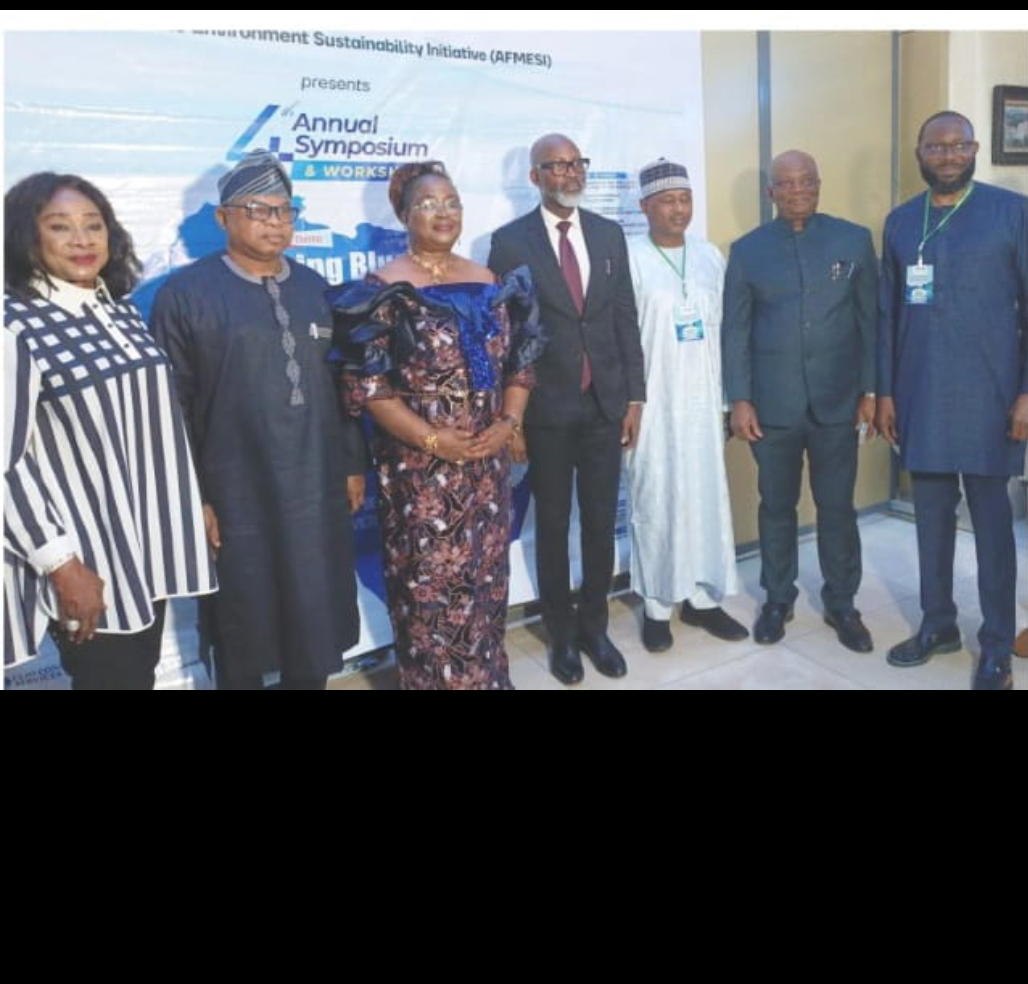
…says coastal communities can earn N320mn annually
By Providence Ayanfeoluwa & Grance Okpaneka
The Executive Director, Operations and Technical Services, Tantita Securities Services Nigeria Limited, Capt. Warredi Enisuoh, yesterday, said that there is a potential wealth in carbon credit which allows coastal communities to earn N320 million annually.
Carbon credits are permits that allow the owner to emit a certain amount of carbon dioxide or other greenhouse gases, GHGs.
Speaking in a keynote at the ongoing African Marine Environment Sustainability Initiative, AFMESI’s 4th Annual Symposium and Workshop, themed: “Achieving Blue Growth in A Changing Climate – Integrating the Coastal Communities”, Enisuoh express worry over climate change problem, especially green house gas emission.
He said that there is a divide in the fight against emission because after signing climate change act, Nigeria is still investing in diesel trains.
He revealed that one matured tree can absorb 80 kilograms carbon dioxide, CO₂ from the atmosphere in a year, explaining that the Western Countries came up with carbon credit when they realized that even with all their technology, they will not be able to capture what nature can do.
He said: “They came up with carbon credit, carbon credit is the future, we missed out on the industrial age, if we key into it now, we would succeed because we now hold a lot of credit. All the communities with forest are potentially rich people as we speak, but nobody is telling them.
“Those who own carbon credit, if they are technologically sensible enough to calculate their carbon credit, they can exchange that carbon credit for development.
“Communities can give carbon credit to carbon credit project developers, in exchange; they would build projects for your communities. They can build green projects for your community. To be able to value the forest in that community, to give it carbon credit, it is not just because it is a forest; a lot needs to be done. There are plants that give better oxygen emission; such plants absorb carbon dioxide more than others.
“One matured tree can capture 80kg of CO₂ in a year. If we allocate 50,000 trees per coastal communities and one carbon credit is equal one ton of CO₂ valued at $50 on the average.
CO₂ absorption per year = 80kg x 50,000 trees = 4,000,000kg; earning 4,000,000kg x $50/1,000 – $200,000/уear. $200,000 x 1,600 – N320,000,000 annually,” he said.
Meanwhile, the workshop was declared open by the Minister of Marine and Blue Economy, Adegboyega Oyetola,
Oyetola, who was represented by Prof. Stephen Fakinlede, said the Ministry was committed to safety and sustainable blue economy.
Earlier, the President of AFMESI, Dr. Felicia Mogo, maintained that the initiative was focused on establishing innovative financing mechanisms that support blue economy projects across Africa.
Mogo said: “We aim to attract investment in sustainable ocean industries, from eco-friendly aquaculture to renewable marine energy, and to ensure that these investments benefit the communities most in need. We will work with financial institutions, government agencies, and private organizations, among others to achieve this goal.”
“Over the years, AFMESI has championed numerous projects and initiatives in Nigeria, and across Africa, aimed at protecting our marine ecosystems, empowering coastal communities, and advancing policy frameworks that support sustainable marine practices,” she remarked.
Disclaimer
Comments expressed here do not reflect the opinions of Vanguard newspapers or any employee thereof.